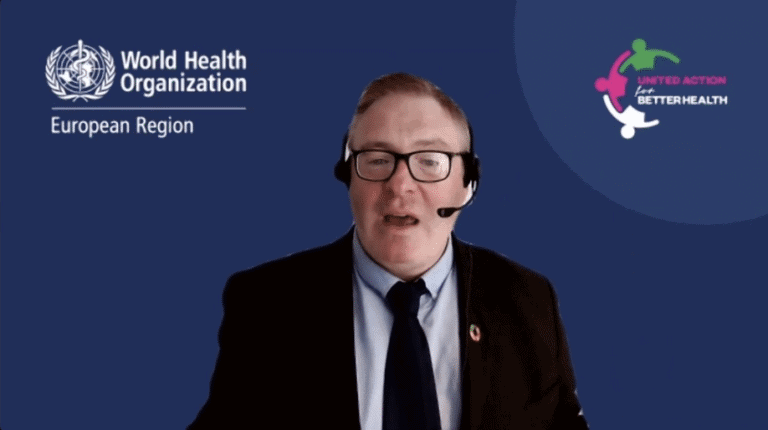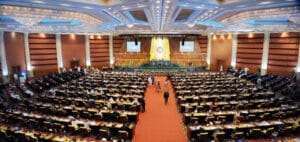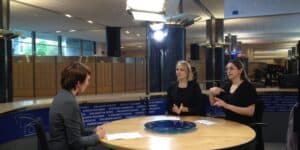On Wednesday, 26th April, EUD was invited to Civil Society Consultation on implementing the World Health Organisation (WHO) European Framework for action to achieve the highest attainable standard of health for persons with disabilities 2022-2030. Specifically, the WHO Regional Office for Europe organised this consultation to gain input, from civil society organisations, to their draft Leadership and Governance Toolkit.
An overview of the WHO Global report on health equity for persons with disabilities and the relevance of its guidance to the European Region was provided by Mr Kaloyan Kamenov, Technical Officer, Sensory Functions, Disability and Rehabilitation, WHO, at the beginning of the meeting. For instance, the WHO have identified 10 action areas for achieving health equity for persons with disabilities, such as political commitment, leadership, governance, monitoring and evaluation.
Throughout the meeting, the importance of ensuring empowerment and meaningful participation when implementing health sector action was stressed as well as the need for monitoring and evaluation health sector actions. Indeed, the overarching aim of this toolkit will be to progress towards disability-inclusive healthcare across the EU. One aim of the previously mentioned Framework for Action is to ensure that, by 2030, all persons with disabilities are included in all healthcare planning, delivery and leadership across the WHO EU Region, leading to a disability-inclusive health sector.
A key theme throughout the consultation was disability-inclusive healthcare – Vera Bonvalot, European Disability Forum (EDF) – Member of Board of directors and member of the Executive committee; Executive Director of the National Organization of People with acquired Brain Injury, explained that disability-inclusive leadership and governance means that the voices of persons with disabilities shape the design, implementation, and monitoring of services.
Finally, Mr Cathal Morgan, WHO Regional Office for Europe provided an overview of the Leadership and Governance Toolkit for the WHO European Region – to promote the rights of persons with disabilities in terms of their equitable access to the best available health care services. To achieve this, it was explained that we need less hierarchical and more collaborative decisions. Indeed, persons with disabilities must have accessible information and access to the services they need to ensure disability-inclusive leadership and governance. This point is of particular importance for deaf persons in the EU, as often it is barriers to accessibility of communication and information they face in the healthcare sector.
Finally, there was a discussion where participants were able to respond to the various ‘action components’ of the toolkit, such as “accessibility”. EUD made several points during the discussion, for instance, on the importance of training healthcare providers in deaf awareness and national sign languages in order to facilitate direct communication with healthcare professionals and staff. In addition to this, in terms of deaf persons’ accessibility to information and communication within the healthcare sector, there is need for the provision of professional and accredited national sign language interpretation is required. EUD also mentioned that it is crucial to build an evidence base on disability and health, therefore there is an urgent need to increase the availability of data disaggregated by disability in the health sector. In this way, the consultation on the Toolkit was an important opportunity for EUD to provide the deaf perspective when it comes to advancing the right to equal access to healthcare for persons with disabilities, in line with Article 25 UN CRPD.













